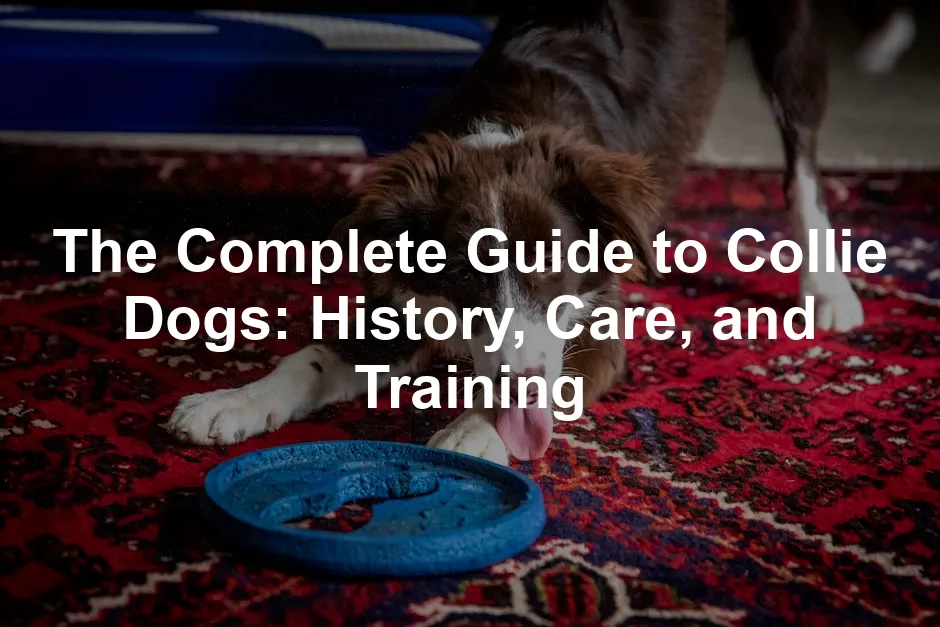Introduction
Collie dogs are adored for their intelligence and loyalty. These versatile companions have long been cherished in families and communities. Historically, they served as herders and protectors, showcasing their value to society. This guide will provide insights into their care, training, and fascinating history.
If you’re looking to dive deep into the Collie universe, check out a fantastic Collie Dog Breed Book. It’s packed with all the info you need to become a Collie expert! Who doesn’t want to be the top dog at dog trivia night?
Summary and Overview
Collies come in two primary types: Rough and Smooth. Rough Collies have long, flowing coats, while Smooth Collies sport short, sleek fur. Both types share common traits—intelligence, gentleness, and a strong bond with their families.
Their friendly demeanor makes them great family pets. They are known for being excellent with children and other animals. Collies require regular exercise, mental stimulation, and grooming to thrive. And speaking of grooming, don’t forget to grab some quality Dog Grooming Brushes to keep that beautiful coat in check!

In this article, we’ll cover key topics, including their history, health considerations, grooming needs, exercise requirements, and effective training methods. Whether you’re a potential owner or just curious, you’ll find valuable information here.
History of the Collie
Origins
The Collie breed has deep roots tracing back to ancient Scotland. Early ancestors were bred to assist shepherds in managing livestock. These dogs were agile, intelligent, and capable of handling large flocks.
By the 19th century, Collies began to gain recognition beyond their herding roles. Their versatility made them popular among farmers and families alike. And if you want to give your Collie the best nutrition possible, consider investing in some High-Quality Dog Food. Your Collie’s taste buds will thank you!
A significant moment in their history occurred when Queen Victoria fell in love with the breed. Her admiration sparked a surge in popularity, leading to their introduction at dog shows. This royal endorsement helped shape the Collie’s status as a beloved companion.
Their journey from working dogs to family favorites highlights their remarkable adaptability and enduring appeal.
Popularity Surge
Collies have seen a remarkable rise in popularity over the years. This surge began in the late 19th century with the introduction of dog shows. The Westminster Dog Show in 1877 featured these striking dogs, capturing public interest. Their elegant appearance and intelligence made them favorites among spectators.
Famous Collie stories also played a significant role. “Lassie,” a fictional character, became an icon in film and television. This beloved Collie showcased bravery and loyalty, resonating with audiences. The success of these media portrayals cemented the breed’s status in popular culture.
As a result, more families sought out Collies, recognizing their gentle nature and intelligence. Today, they are beloved as family pets and companions, thanks in part to their rich history and media influence. Isn’t it fascinating how stories can shape our perception of a breed?

Health Considerations
Common Health Issues
Collies, while generally healthy, are prone to specific health concerns. One prevalent issue is Collie Eye Anomaly (CEA). This genetic condition affects a significant percentage of the breed, with estimates ranging from 60% to 75%. Most affected dogs do not experience vision problems, but early detection through genetic testing is crucial.
Another concern is Progressive Retinal Atrophy (PRA). This condition can lead to gradual vision loss and is linked to genetic factors. Responsible breeders often test for PRA to minimize its prevalence in litters.
Collies may also face other genetic disorders. Multi-Drug Resistance Syndrome (MDR1) affects their ability to metabolize certain medications. Additionally, some Collies are susceptible to hip and elbow dysplasia. Regular veterinary check-ups and responsible breeding practices can help manage these risks. By staying informed, you can ensure your Collie leads a healthy and happy life.
Lifespan and Care
Collies typically live between 12 to 14 years. To ensure a long, healthy life, regular veterinary check-ups are essential. These visits help catch any potential health issues early. Make sure your Collie sticks to a vaccination schedule to protect against common diseases.
Nutrition plays a crucial role in your dog’s health. A balanced diet tailored to your Collie’s age and activity level is vital. Look for high-quality dog food that lists meat as the first ingredient. Don’t forget the importance of exercise. Daily walks and playtime keep them fit and mentally stimulated. For those hot summer days, a Dog Cooling Mat can be a lifesaver for your furry friend!
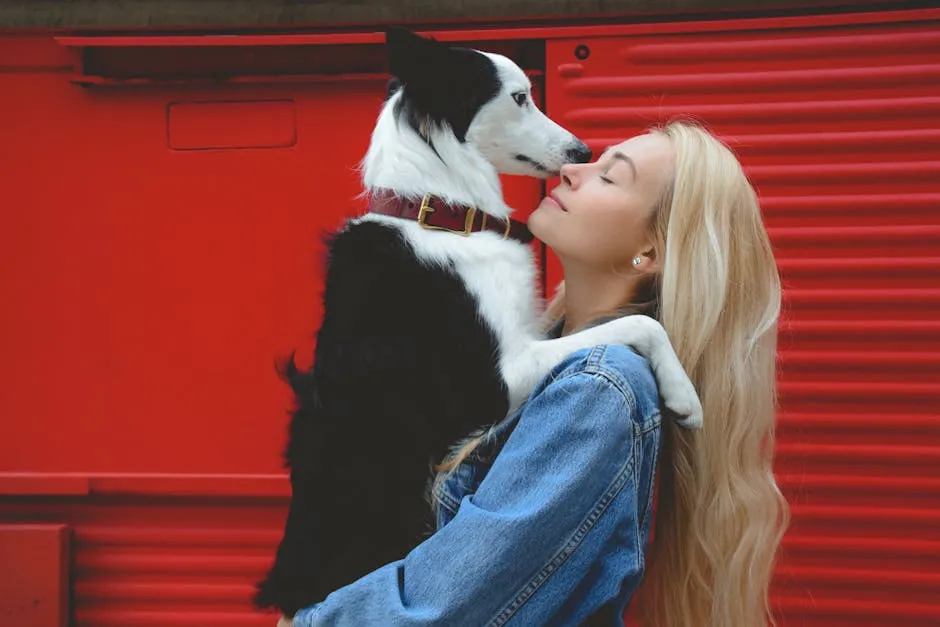
By combining proper nutrition, regular vet visits, and ample exercise, you can help your Collie live a vibrant, happy life. For more insights on exercise needs, check out this article on how to determine the ideal dog breed for your exercise habits in 2024.
Understanding your dog’s exercise needs is crucial for their health. Learn more about finding the right dog breed for your exercise habits.
Appearance and Grooming
Coat Types and Colors
Collies come in two distinct types: Rough and Smooth. Rough Collies have long, flowing fur that requires regular grooming. Their elegant coats often feature a stunning mane around the neck. In contrast, Smooth Collies have short, sleek coats that are easier to maintain.
Both types showcase a variety of color patterns. The most common colors include sable and white, tri-color, blue merle, and white. Each pattern has unique characteristics, with blue merles often being particularly eye-catching. Understanding these features can help you appreciate the beauty of this beloved breed.
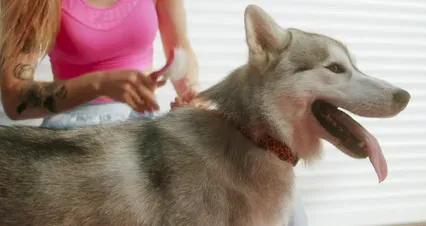
Grooming Requirements
Grooming needs differ between Rough and Smooth Collies. Rough Collies require more attention. Aim to brush them at least once a week to prevent matting. During shedding seasons, increase grooming frequency to daily. And while you’re at it, don’t forget to stock up on some Dog Shampoo for Sensitive Skin. Your Collie’s skin will love you for it!
On the other hand, Smooth Collies need less maintenance. A weekly brush will suffice to remove loose hair and keep their coat healthy. Bathing should occur every few months or as needed. One crucial tip: never shave a Collie. This can lead to skin issues and affect their natural coat quality. Keeping these grooming practices in mind will ensure your Collie looks and feels their best.
Grooming Requirements
Grooming is essential for keeping your Collie healthy and happy. Rough Collies require regular grooming to maintain their luxurious coats. Aim to brush them at least once a week. During shedding seasons, which usually happen in spring and fall, increase grooming to daily sessions. This helps prevent mats and tangles.
Smooth Collies are easier to groom. A weekly brush will keep their short fur in good condition. Bathing should occur every few months, or as needed, to keep their coat fresh. One common mistake many owners make is shaving their Collies. This can lead to skin issues and may permanently damage their coat.
Instead, focus on brushing and bathing to keep their coats looking great. With proper grooming, your Collie will not only look beautiful but also feel comfortable and healthy.

Daily Requirements
Collies have specific exercise needs that keep them fit and content. Ideally, they need at least one hour of exercise each day. This can include brisk walks or engaging playtime in a secure area.
Activities like fetch or agility training are excellent for both physical and mental stimulation. Collies thrive on challenges, so mixing in puzzle games can be beneficial too. Mental exercises keep them sharp and reduce boredom. For those days when you want to spice things up, an Interactive Dog Puzzle Toy can turn playtime into a brain-busting adventure!
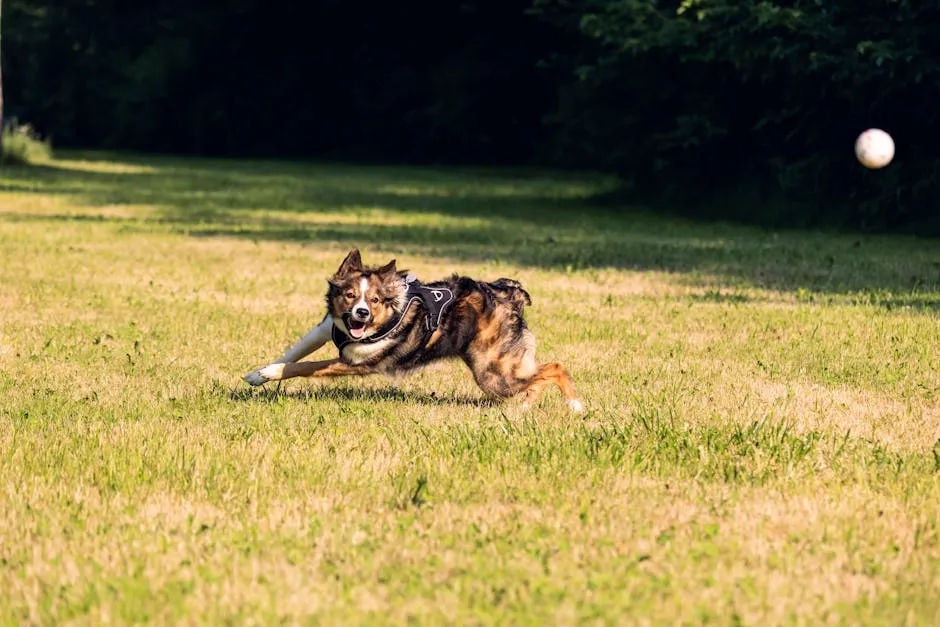
Consider your Collie’s energy level. Puppies will need more frequent bursts of activity to prevent them from becoming restless. Adult Collies enjoy varied routines, while older dogs may prefer gentler walks.
By understanding and meeting their exercise needs, you’ll foster a happy, well-adjusted Collie. Regular activity not only enhances their physical health but also nurtures their emotional well-being.
Tips for Active Living
Incorporating exercise into your daily routine is essential for your Collie’s health and happiness. Start by engaging in fun games, like fetch or frisbee. These activities not only provide physical exercise but also strengthen your bond. Consider agility training, which challenges your dog both mentally and physically.
Dog parks are fantastic for socialization. They allow your Collie to play with other dogs while you meet fellow pet owners. Regular visits to these parks can help your dog develop good social skills. Training classes are another excellent opportunity. They teach obedience while providing essential interaction with people and other pets.
Mix up your exercise routine! Take walks in different locations to keep things exciting. Your Collie will appreciate the change of scenery and new smells. Overall, making exercise a fun part of your day will benefit both you and your furry friend. For more tips on dog parks, check out our ultimate guide on dog parks.

Dog parks can greatly enhance your Collie’s socialization skills. Read more about the benefits of dog parks.
Training Your Collie
Basic Training Techniques
Training your Collie can be a rewarding experience. Start with positive reinforcement strategies. Reward your dog with treats or praise when they follow commands. This encourages good behavior and strengthens your bond. Common commands like “sit,” “stay,” and “come” are essential for a well-behaved pet.
Consistency is key in training. Use the same commands and rewards to help your Collie understand what you expect. Patience is equally important—some days will be easier than others. Keep training sessions short and fun to maintain your Collie’s interest.

Make sure to socialize your Collie early on. Exposure to different environments, sounds, and people will help them become well-adjusted companions. With dedication and love, your Collie can learn to be a happy, obedient member of your family. And don’t forget to use Dog Training Clickers for effective training sessions!
Advanced Training and Socialization
Once your Collie masters basic commands, consider advanced training techniques. Behavioral training can address specific issues like jumping or excessive barking. These methods help modify behavior while promoting a strong bond.
Socialization is crucial for your Collie’s development. Introduce them to other pets and people regularly. This exposure reduces anxiety and fosters confidence. Organizing playdates with other dogs can enhance their social skills.
Be proactive in addressing common behavioral issues. If your Collie exhibits fear or aggression, consult a professional trainer. With the right guidance, you can help your Collie thrive in various situations. Advanced training and socialization ensure your Collie becomes a well-rounded companion.
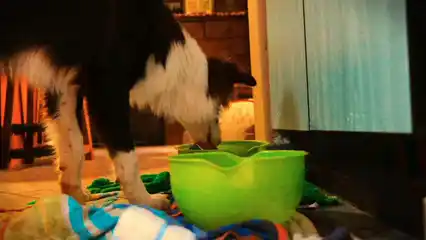
Conclusion
Owning a Collie brings immense joy and companionship. Each section of this guide highlights the importance of meeting their needs. From exercise to training, understanding your Collie is vital for a happy life. Consider adopting a Collie if you’re seeking a loyal and loving furry friend. You’ll find that their intelligence and gentle nature make them wonderful family members. Embrace the journey of caring for a Collie, and enjoy every moment together. And remember, a Dog Treat Dispenser can make training even more fun!
FAQs
How much exercise does a Collie need daily?
Collies typically require at least 60 minutes of exercise daily. Activities can include walks, playtime, and mental challenges. Engaging your Collie in regular exercise keeps them healthy and happy.
Please let us know what you think about our content by leaving a comment down below!
Thank you for reading till here 🙂 And don’t forget to grab a Pet First Aid Kit just in case your adventure takes a wild turn!
All images from Pexels

